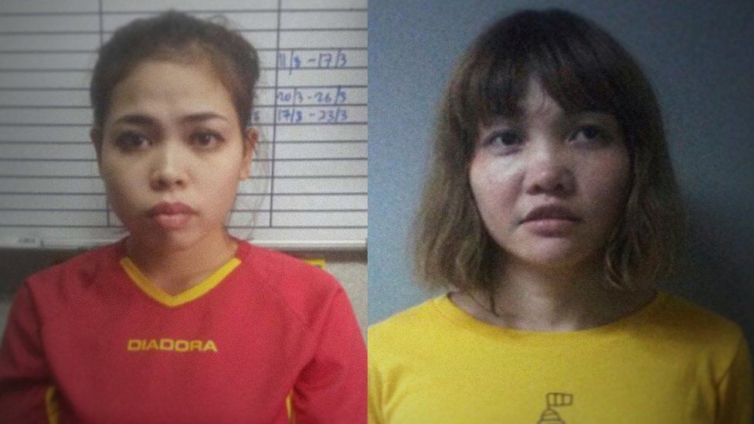When four years ago film-maker Ryan White heard about the airport assassination of Kim Jong-nam he knew the story was extraordinary but he had no intention of turning it into a film.
Months later he thought again - plunging him into a dark world of intelligence operatives and geopolitics of which he knew almost nothing.
White has been making documentaries for more than a decade. Probably the best-known is The Case Against 8, about the legal fight for gay marriage in California.
"Then in 2017 we all registered how bizarre the Kim Jong-nam story was," he says.
"The weird story of the half-brother of the North Korean leader being killed at Kuala Lumpur airport by women who smear him with a lethal nerve agent - and then claim it had been a prank for reality TV.
"And I'd love to say that instantly I knew there was a film in it. But really I didn't."
Kim, aged 45, died of contact with VX nerve agent in Malaysia even before he reached hospital. Within a couple of days two women were arrested for his murder.
Doan Thi Huong was 28 and from Vietnam and Siti Aisyah was a 25 year-old Indonesian.
Kim Jong-nam had not been in favour with his half-brother Kim Jong-un, who had been supreme leader of North Korea since 2011.
For some years he lived in exile in Macau and the new documentary includes file footage of Kim Jong-nam speaking on camera.
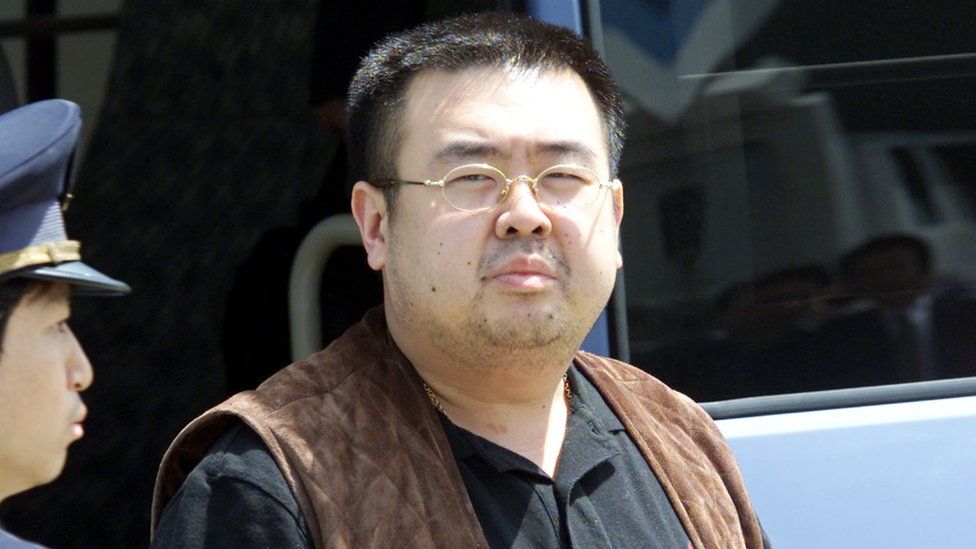
But White only started to perceive the story as a film project after an approach by journalist Doug Bock Clark.
"Doug Clark said he was writing a deep-dive investigative piece for GQ magazine. He told me there was a lot more to say than had ever hit the headlines - the timing close to the Trump inauguration had meant that Americans didn't really follow the story for very long.
"Doug explained the two women in Malaysia were to go on trial with a mandatory death penalty if they were found guilty. They were sticking to their story about being set up to believe they were in a reality TV show when they smeared Kim.
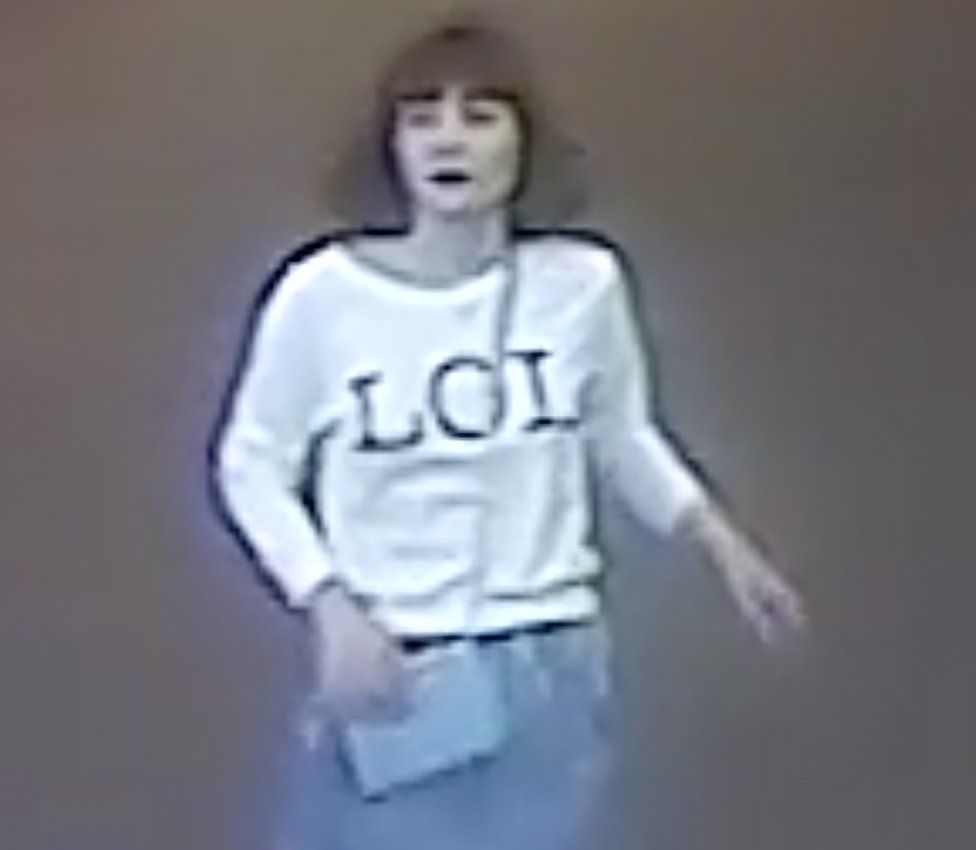
"At that point it seemed inconceivable to me that could possibly be a defence. And my experience with The Case Against 8 had made me vow never again to make a film built around a trial: it had involved more than 600 hours of filming with all the difficulty that brings in editing.
"But the more I thought about what Doug had told me the more I could see the trial could offer the three-act structure which you often look for in a documentary. So a few weeks later I was on a plane to Malaysia.
"It was only much later I started to think that what the two women were claiming sounded unlikely... but they were starting to convince me. Could they even be innocent?"
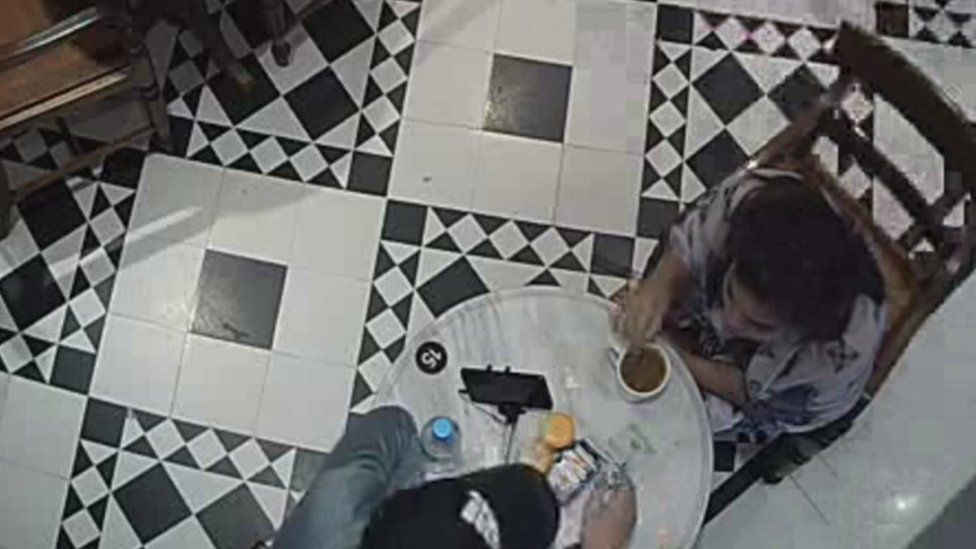
CCTV footage has become a staple element of crime documentaries, often taken for granted. Without access to video of what happened at Kuala Lumpur International Airport on 13 February 2017 White says his film might have been impossible to make. For more than a year, the police and other bodies in Malaysia refused to release material, beyond a few moments already widely seen.
The director won't say how finally the CCTV recordings emerged but they're an extraordinary part of the film. Yet how does he know footage of the attack on Kim and of what followed (we see the women swiftly leave the scene) hasn't been edited or manipulated?
"There were thousands of hours of footage to go through frame by frame - there were multiple cameras on everything. A small section is missing - otherwise, we can account for every moment. We had to buy special burner computers to process all the DVDs - and we spent three months doing it."
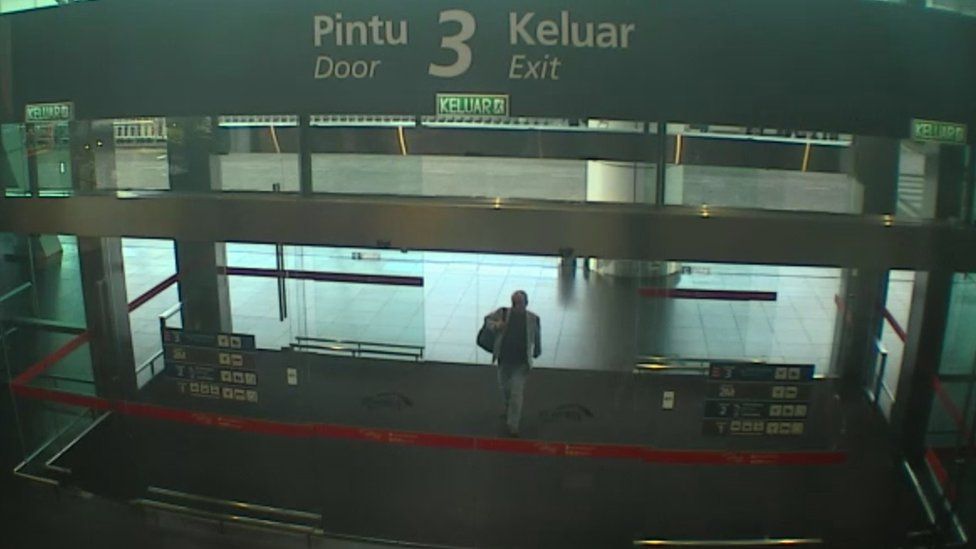
The two accused were from different countries and had had very different life experiences.
White travelled to meet both families who agreed to cooperate in the film. "I think to them I was just one more press guy seeking a quick interview rather than someone making a big documentary.
"But that was part of our trajectory of at first thinking that these women are probably lying. Then over a period of months I realised that what they were saying added up. But it was a very slow-burn revelation."
For most of the time the film was being shot the women were in jail. Aisyah was released from custody in March 2019 and two months later Huong was also freed.
Throughout the two-and-a-half years spent on his film White had no direct contact with the North Korean government. Or at least he believes he didn't.
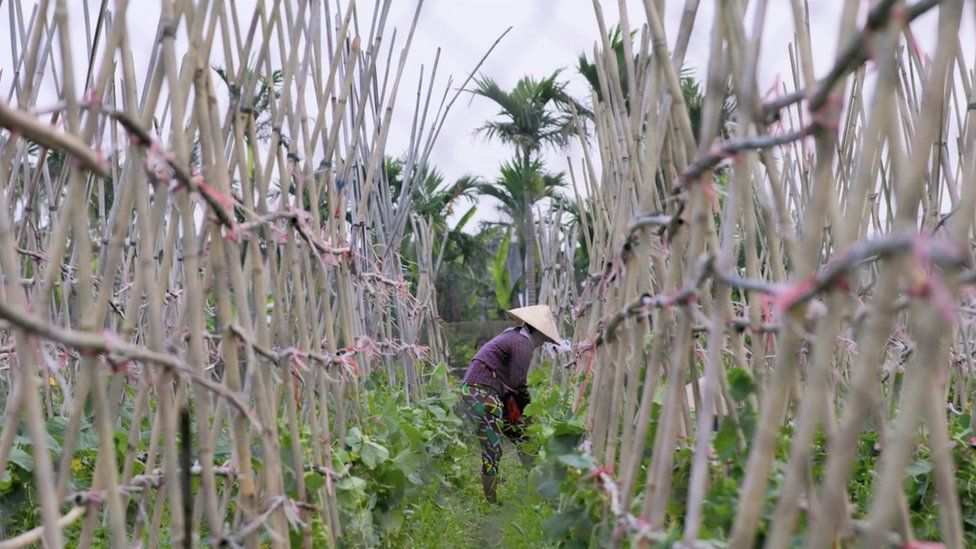
"Maybe it's just paranoia but I think with a project like this sometimes you maybe email someone - but do you know for sure the person you're communicating with is who they say they are?
"There was a point last year when we had a premiere for the film and I was communicating with Doan through Facebook.
"But I realised that the angry messages she was sending didn't sound much like Doan and didn't even sound like the type of English she would use.
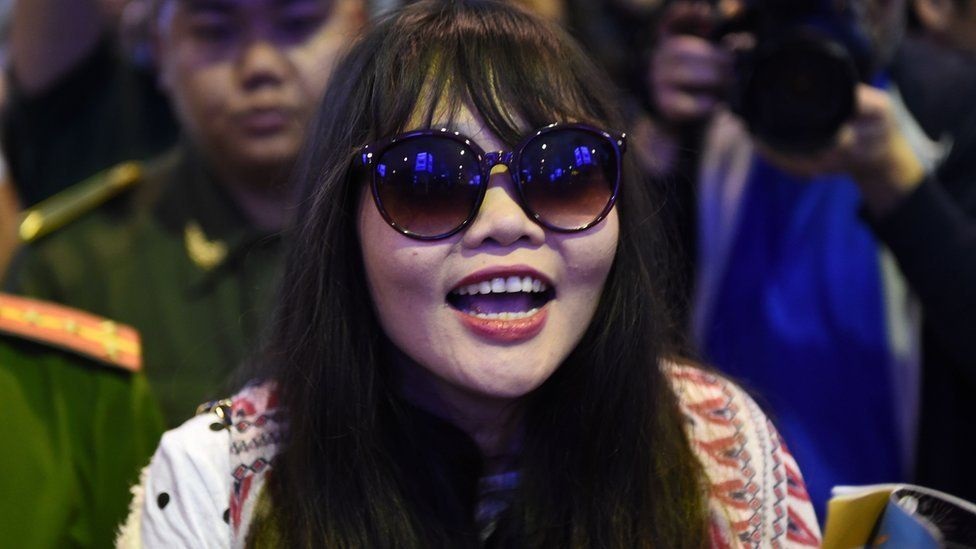
"So I messaged her on a different app and we realised that someone had been mimicking her Facebook profile in a very sophisticated way to communicate with me.
"Can I point a finger at the North Korean regime and say they were manipulating Doan's messages at that point? I can't know for sure but there were other instances where things like that happened."
But does White believe a massively secretive regime like that in Pyongyang, almost totally sealed-off from the outside world, will take an interest in how it's portrayed in an American documentary?
"It's hard to say anything definitive about North Korea. But they chose to carry out a murder in a hugely public place - so maybe they will think the more publicity the better. There were endless security cameras recording every moment at that airport.
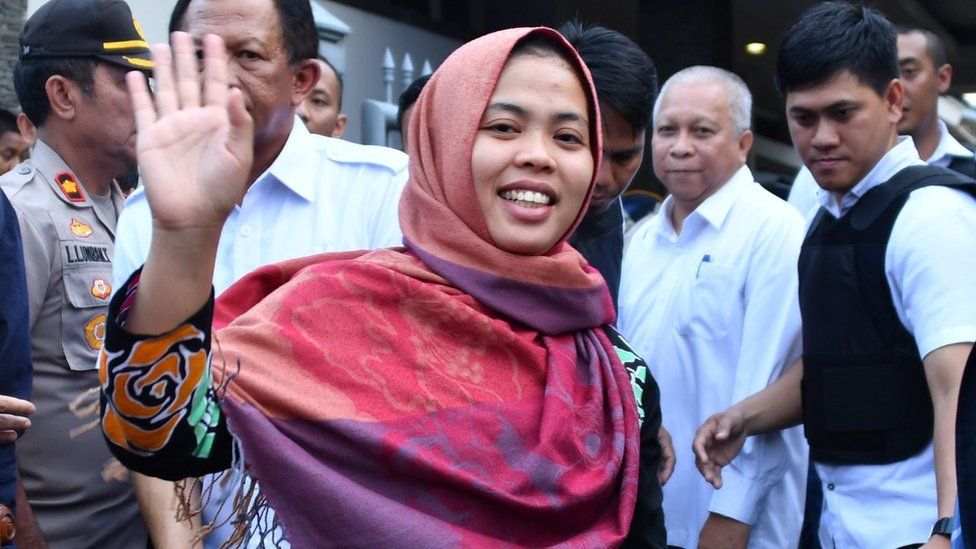
"Kim Jong-nam could have been killed in other ways in another place. So what's the rationale for carrying out an assassination in that extraordinary manner?
"Kim Jong-un and those working for him wanted a very public murder to show the whole world what happens when people displease the nation's supreme leader or get in his way. Even if they're family."
Latest Stories
-
Let’s prioritize research quality in higher education institutions for industrial growth-Prof. Nathaniel Boso
4 hours -
Herman Suede is set to release ‘How Dare You’ on April 24
8 hours -
Heal KATH: Kuapa Kokoo, Association of Garages donate 120k to support project
8 hours -
KNUST signs MOU with Valco Trust Fund, Bekwai Municipal Hospital to build student hostel
8 hours -
The influence Ronaldo has on people, Cadman Yamoah will have same on the next generation – Coach Goodwin
9 hours -
Gender Advocate Emelia Naa Ayeley Aryee Wins prestigious Merck Foundation Awards
10 hours -
South Africa bursary scandal suspects granted bail
10 hours -
Ecobank successfully repays $500m Eurobond due April 18
10 hours -
Re: Doe Adjaho, Torgbui Samlafo IV, call for Unity among Paramountcies in Anlo
10 hours -
Extortion and kidnap – a deadly journey across Mexico into the US
10 hours -
Rihanna says fashion has helped her personal ‘rediscovery’ after having children
11 hours -
Development Bank Ghana targets GH¢1bn funding for commercial banks in 2024
11 hours -
Shatta Movement apologises to Ghana Society of the Physically Disabled after backlash
12 hours -
Sammy Gyamfi writes: Tema-Mpakadan Railway Project; A railway line to nowhere
12 hours -
Bright Simons: Is the World Bank saving or harming Ghana?
12 hours

